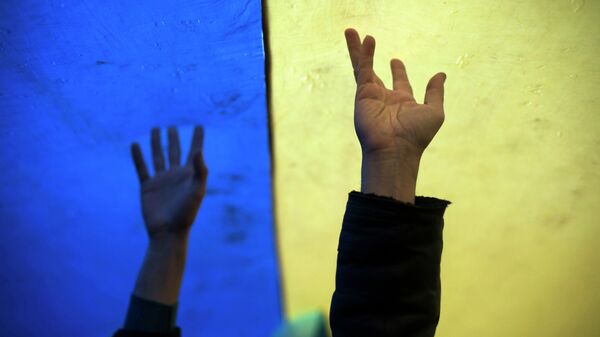At a December 15 meeting of the EU Council, EU leaders sought to formally reassure the Dutch government, led by Prime Minister Mark Rutte, that the agreement does not imply eventual membership, freedom of movement within the EU for Ukrainians, or a pledge of military protection.
While these assurances were offered orally prior to the April 4 referendum in the Netherlands, and the proposal had been approved by the Dutch government, their veracity was questioned by opposition politicians and the media.
Voters overwhelmingly rejected the proposals, by 64 percent to 36 percent.
While the original agreement did not offer these benefits, it did not explicitly rule them out. The new text overtly states the agreement is not a "stepping stone" for the Ukraine to become an EU member, Ukraine will not receive additional financial support from the EU, and does not contain an obligation for the Union or its member states to provide security or other military aid or assistance to Ukraine.
Today #EU instructed #Dutch to ratify removing trade barriers with #Ukraine not an #EU member against referendum decision of voters. #farce
— Cornishview (@Cornishview) December 16, 2016
Now these guarantees have been codified, the Dutch parliament will consider ratification when parliament reconvenes in January 2017. The agreement was originally written in March 2014, in the wake of the coup that removed democratically-elected President Viktor Yanukovych from power. Every other EU member state has ratified the treaty since, and it has partially come into force.
Dutch gov about to sign EU-Ukraine deal despite ppl voted NO in referendum. This arrogance is what created Trump and will create more Trumps
— Koos Jansen (@KoosJansen) December 15, 2016
In a Facebook post, Ukrainian President Petro Poroshenko called upon the Dutch parliament to assist in the agreement's "swift" entry into force.
"Provisional application of the agreement has already brought a number of positive results. Ukraine looks forward to continuous support from the EU, including The Netherlands, in the future implementation of the Agreement, which is in the strategic interests of both sides."
Nevertheless, the Dutch parliament's acceptance of the new deal is far from certain. Bart Elsman of the Dutch Christian Democratic Appeal party told Sputnik that Rutte's government must not ignore the will of voters.
"The CDA has said from the very beginning we are against referendum in general, but this referendum has been organized by law, and once you ask the people what they want, you have to do something with that. The result has been that people voted NO, and CDA still believe that to be the case."
Dutch democracy = dead
— Oh boy what a shot (@ohboywhatashot) December 15, 2016
Dutch PM, European Union & media ignore Dutch referendum results (61% voted NO).
NO = NO. #Oekraïneverdrag pic.twitter.com/0USRrUVLyi
At the summit in Brussels, EU leaders also agreed to renew sanctions against Russia into mid-2017.


